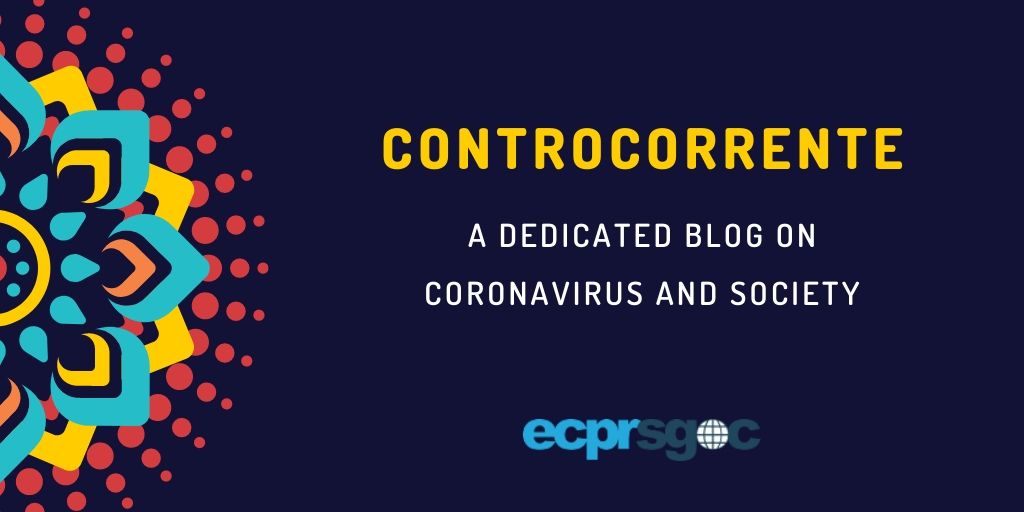
The Socio-Economic Impact of Covid-19 in India: a comparison with the Black Death
Prem Mahadevan
Senior Analyst, Global Initiative against Organised Crime
During the 14th century, bubonic plague originating from China, made its way along overland trade routes to the Crimea, from where Italian merchant ships brought it to Western Europe. Within a year, the Black Death was spreading fast and over three years (1347-50) had wiped out anywhere between 30 and 50% of all Europeans. To this day, the actual proportion is disputed.
As fear of an unseen threat gripped the continent, a search for scapegoats began. The Jewish community was especially targeted. It dominated the money-lending sector, and as panic spread, creditors were accused of poisoning their Christian neighbours, tortured into signing false confessions and executed. In what appears to have been a macabre fusion of debt evasion, lynch-mob mentality and human sacrifice ritual, wholesale massacres took place in some towns despite Pope Clement VI pointing out that Jews were succumbing to the plague as much as Christians. His pleas for inter-faith harmony were ignored since the Pope himself was seen as morally degenerate.
A combination of very high contagion and fatality rates caused societies to fragment. Previously tight-knit families cast out sick members. The clergy, around which social and cultural life was centred, had its legitimacy weakened once its members proved as susceptible to the plague as anyone else. For centuries afterward, Europe struggled to recover from the loss of artisans and craftsmen who perished in the Black Death. Yet, there is a view that in the long run, the plague had a positive impact on the continent’s development, by forcing the pace of societal change.
With the poor dying to a greater extent than the rich (because they could not relocate to safer areas), unskilled labour became scarce. This later allowed peasants to demand higher wages for working on the estates of wealthy landowners. Feudalism began to decline as an intermediate class of small farmers, having inherited property from deceased relatives, came up between nobility and serfs. The diminished authority of the Church allowed reforms in healthcare and medical science, with the latter contributing to the intellectual surge that became the Renaissance. Perhaps most importantly, the invention of labour-saving devices such as the Gutenberg Press led to a six-century interregnum during which knowledge was democratized. Through growing literacy, the lower classes were given a pathway to improve their status within a quasi-meritocratic structure. This interregnum finally appears to be ending in the 21st century, as audio and visual media carried on social networks that are unconcerned with factual accuracy (ie., WhatsApp) replace the written word as a transmitter of knowledge. With such changes, comes a return to parochialism and the emergence of a peculiar form of superstition that is best understood by the descriptive term ‘conspiracy theory’.

Covid-19 strikes at a time when transformative forces have run out of steam and conservative ones are gaining ascendancy. The disease offers governments, both authoritarian and democratic, a chance to reimpose ‘discipline’ over populations fattened by three decades of hyper-consumerism and hyper-individualism that followed the end of the Cold War. Geopolitical tensions are rising again, and human security is less of a policy concern than it was in the 1990s and early 2000s. Many Western states have felt bold enough to impose movement controls over their own citizens to varying degrees, citing a warlike danger, and almost totally denied entry to foreigners. In doing so, they have adopted measures vaguely similar to those China previously used to contain the coronavirus’ spread in Wuhan. An established democracy such as Israel has even gone to the extent of using surveillance technologies developed for counterterrorism, to keep watch on citizens who are under quarantine orders.
India, an Asiatic civilization-state which shares many of China’s conservative social attitudes but differs by having a democratic form of governance, makes for an interesting study in contrasts. The citizenry has long been suspicious of ‘Big Government’ (a legacy of colonialism) and hostile to official discrimination. Yet, it is now enthusiastically applauding state intervention in private life. New Delhi went further than most democratic governments by temporarily denying some of its citizens travelling abroad, the right to automatically return home. Covid-19 is perceived as a “top-down, passport holder’s disease” that mostly affects the small percentage who can afford foreign travel, and whose personal problems do not concern the majority of the country’s electorate. Thus, Indian tourists found themselves stranded in Italy owing to New Delhi’s insistence that they produce ‘virus-free’ medical certificates before emplaning for home. This policy stance was shrugged off by the general population back in India, even as it implicitly reduced the status of a national passport to a glorified visa. It must be remembered that holding the passport of a country grants one a right to return to that country, and is not the same as a visa, where admission is a privilege that is not guaranteed.
Possibly, Covid-19 is unleashing the same kind of xenophobia and class tensions that the bubonic plague did in the 1300s. Political elites will likely race to appropriate ownership over such forces before they turn against the status quo. Conspiracy theories already abound that either the US or China developed a deadly strain of coronavirus as part of a biological warfare programme, but that this bio-weapon then went out of control and triggered a pandemic. Quite why it would disproportionately kill elderly people as opposed to those of military age, is left unanswered. What is important to note is that dissemination of such theories is not being done on the darknet alone, but also through press statements and tweets by government spokesmen and academic commentators.
In Europe, tourists and local residents with East Asian features have been subject to racial abuse, and anger is building up over the relative swiftness with which wealthy individuals can get tested and treated for Covid-19. Meanwhile in India, European visitors have been turned away from public transport, hotels and restaurants. Appalling stories have emerged from the province of Kerala, a popular tourist destination, of Europeans begging for food and sleeping in cemeteries, because no-one has the humanity to assist them. This, despite a much-hyped Indian proverb that ‘the guest is akin to God’. The same society that in normal times eagerly covets tourist dollars from fair-skinned Westerners, now treats them as untouchables according to the logic of its millennia-old caste system.
Indians returning from abroad have it little better. Their difficulties in re-entering the country are the subject of schadenfreude on social media. For many people, seeing those who normally jet-set across the world now reduced to queuing up for virus-screening, or quarantined in poorly-run government facilities, is a social equalizer. There are plenty of false reports being circulated via WhatsApp, about Covid-19 being a disease that affects meat-eaters or pet-owners. In a culture where eating meat is viewed by some puritanical types as barbaric, and ownership of pets is seen as an indulgence, such reports carry a message: Covid-19 is ‘God’s curse unto the sinner’. Europeans living in the 14th century thought the same about the Black Death. That was why, when they were not killing Jews, they rounded up sex workers and raided gambling dens to appease ‘God’.
In what can only be interpreted as a test of law enforcement capacity, the Indian government imposed a 21-day lockdown beginning 24 March 2020. This, in a warm-temperature country where power outages and widespread poverty mean that access to refrigerated food is not assured for the majority of the population. Merely obtaining groceries to keep low-income households going will be a logistical challenge. As a result of the inconvenience caused, vigilante anger is likely to focus on those with foreign connections and travel experience. The Indian national airline has complained that crew members who fly to overseas destinations, including on evacuation flights to bring back stranded fellow-citizens, are being harassed within their residential neighbourhoods. Apparently, the mere fact of having travelled abroad is sufficient for someone to be labelled as a virus-carrier, ostracized and even harassed by police, who appear unwilling to resist demands from a petrified populace.
With the International Labour Organization predicting that up to 25 million jobs could be lost worldwide as a result of economic disruption caused by Covid-19, it is safe to suggest that a massive societal transformation is on the cards. But unlike the Black Death, the end-result might not be positive. Winners in the post-Covid economy will be those with financial resources to afford large homes and with fast internet connections, since these can be more easily adapted to a home office model if one is laid off and forced to practice small-scale entrepreneurship. Meanwhile those on the lower end of the skills hierarchy would find themselves with little choice except to occasionally engage in illicit activity to make ends meet. India was already facing economic difficulties before Covid-19, having been overly dependent on foreign investment which reduced substantially after the 2008 global slowdown. The country, along with the rest of the world, will now be badly hit by a jobs crisis as a result of business closures. Henceforth, working in government or researching on organized crime might turn out to be a rather good career investment in an otherwise grim employment scenario.
***
This blog aims to reflect the opinions, thoughts, and concerns of academics and researchers related to COVID-19. It does not aim to engage any prediction. All views belong to authors and it does not represent the views of any organisation.

